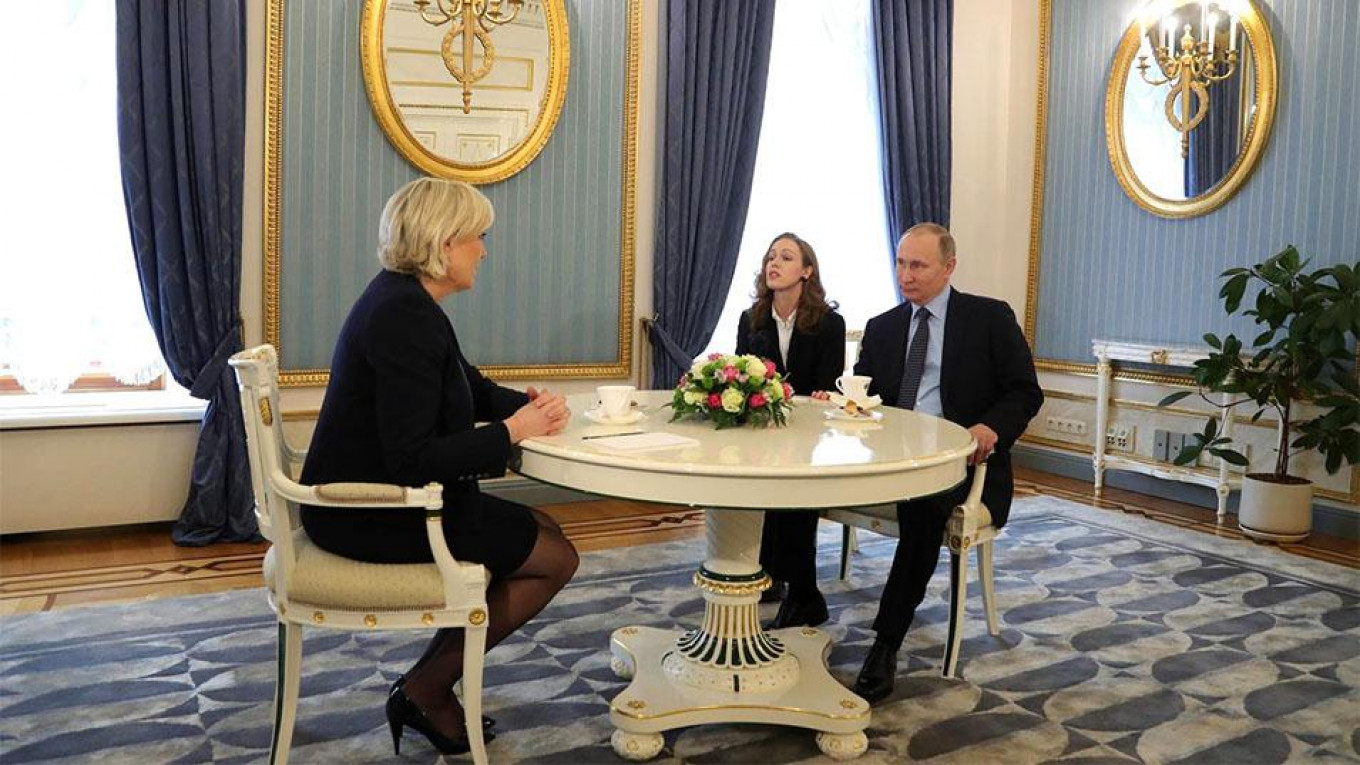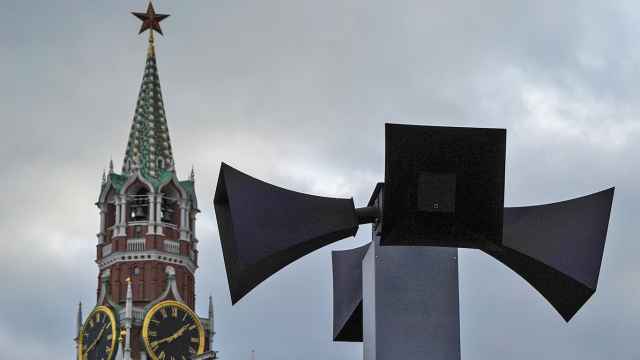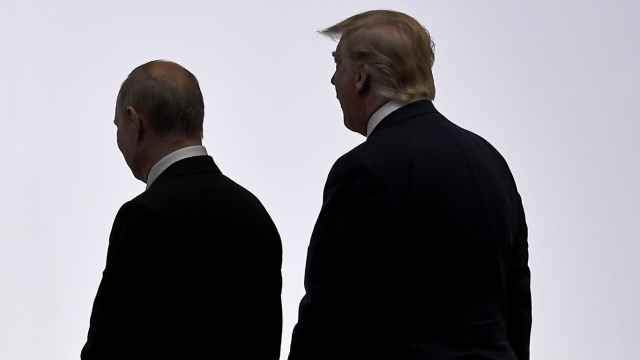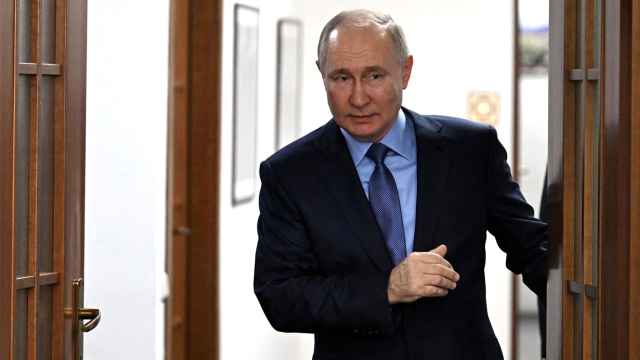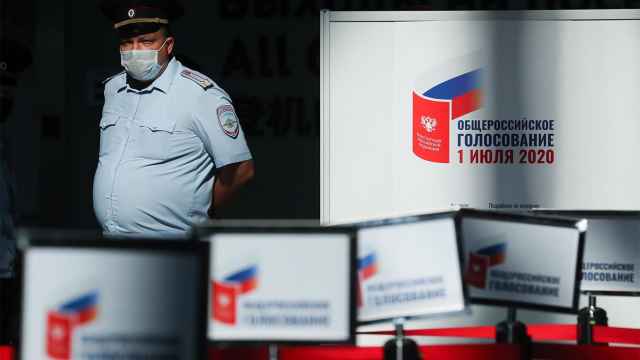I recently had a lot of fun watching a short campaign video from Colombia that tells an elaborate story of some vodka-drinking, foul-mouthed Russian spies trying to understand Colombian politics.
The country holds presidential elections this coming May and the campaign behind the video is that of Claudia López, a senator and respected former investigative journalist running on an anti-corruption platform.
This video was a good thing because it was more a joke than a straight-faced accusation of meddling. Unfortunately, this kind of approach is rare.
Russian meddling has recently become a fixture in Mexican politics too. An expected front-runner in the country’s presidential race, Andrés Manuel López Obrador, was called a Russian-backed candidate by his opponents.
"Here I stand waiting for a Russian submarine to resurface and bring me Moscow’s gold," López Obrador, the leader of Mexico’s National Regeneration Movement (Morena), said in a specially recorded video. López Obrador, who is his party’s presumptive nominee in the general election this July, recorded his response while standing on an embankment in the port city of Veracruz overlooking the Gulf of Mexico.
An upsurge in circulation of Russia-related subjects in Mexico followed comments by U.S. National Security Adviser H. R. McMaster. In early January a journalist with the Mexican daily newspaper Reforma posted on Twitter a clip of McMaster alluding to possible Russian influence in the presidential election in Mexico.
"We’ve seen that this is really a sophisticated effort to polarize democratic societies and pit communities within those societies against each other," McMaster said describing his understanding of Russian scheming.
“You’ve seen, actually, initial signs of it in the Mexican presidential campaign already,” he continued. He did not elaborate in the clip, recorded on Dec. 15, on how Russia was seeking to influence the election. The clip went viral on Mexican social networks.
The Russian-meddling theme seems to be penetrating the Latin American universe through American television networks, for which Russian influence has been a recurrent subject during Trump’s entire first year in office.
Trump and Russia have been mentioned in the same breath so often that the two words have become almost inextricably linked in the minds of many ordinary Latin Americans.
“This is why the level of awareness of the subject in Latin America is by now high, which allows various external and domestic political forces in countries like Mexico or Colombia to play out the Russian card,” Vladimir Rouvinski, director of the Laboratory of Politics and International Relations at Universidad Icesi in Colombia, explained to me in an email.
“They [Russians] are trying to create a world, in which the electorates are no longer able to tell what is true from what is false. This is a cheap strategy that is sowing chaos and is advantageous for them,” Frank Mora, director of the Florida International University Latin and Caribbean Center, said in an interview with the widely read Colombian newspaper El Tiempo.
Quoting Mora, the article goes on to say that more Russian efforts to influence elections have been detected in Mexico, Argentina, and Peru and are also aimed at Costa Rica and Brazil, which are slated to hold general elections in February 2018 and October 2018, respectively.
(A recent report by the National Endowment for Democracy on authoritarian influence that Mora quoted in the interview is available here).
An example of the kind of influence Mora apparently has in mind is a series of video blogs produced by the Spanish-language RT and called “La batalla por México” (The battle for Mexico).
“We have to close ranks with Andrés Manuel López Obrador,” says John M. Ackerman, a left-wing activist and a supporter of López Obrador, in one of his videos dated March 7, 2017, and viewed fewer than 7,500 times.
John M. Ackerman is an American academic and a naturalized Mexican. Judging from the string of videos posted on YouTube, Ackerman, the son of well-known Yale professors Bruce Ackerman and Susan Rose-Ackerman, has anchored the RT blog “La batalla por México” for more than a year now.
Does providing a platform to activists supporting divisive political agendas constitute election meddling? Does buying ads on social networks or using well-known social media marketing techniques amount to undermining democracies?
If some North American, Latin American, or European politicians think so, then they are agreeing with the Kremlin. A view persistently endorsed by the Kremlin political managers is that Western media have been doing this to Russia for years. An opposition-minded Russian writing a column for the Wall Street Journal is, according to this view, a case of meddling in Russia’s affairs.
From this perspective, the Wall Street Journal publishing a column by Garry Kasparov equals RT running a blog produced by John M. Ackerman. Isn’t our media activism a mirror image of what you are doing with your media?, a proponent of this view would ask his or her American opponents.
The fact that the Journal is a private outlet complete with a venerable conservative opinion platform while RT is a government-funded institution would be of secondary value to those supporting the Kremlin’s understanding of how politics is done. Russian media efforts are often, if not always, aimed at mirroring and trolling the opponents by establishing an equivalence between barely comparable things. Why help it?
One recent case of Russia actually backing a candidate in a foreign country is illustrative. In March 2017, one month before the vote in France’s presidential election, Marine Le Pen traveled to Moscow to meet with President Putin.
The Kremlin clearly enjoyed the gossip in the West about Russia financing Le Pen’s campaign because the media circus obscured the fact that the less than generous support provided was mostly a publicity stunt aimed at the West. In 2014, Le Pen’s National Front did take Russian loans worth 11 million euros ($13.6 million), including a loan from the small First Czech-Russian Bank.
But the cash-strapped campaign needed more and didn’t get it. Speaking on Europe 1 radio after a visit to Moscow where she met President Vladimir Putin, she said she did not have any financial backing from Russia, nor from any Russian financial institution. Le Pen lost big time.
Russia’s support for Trump was of similar kind: more a prank conducted at Hillary Clinton’s expense than a strategy to get Trump elected. That is why it is so hard to find any hard evidence of collusion. The prank misfired, but that is a different story.
Not Russian but American media have popularized the theme of an alleged collusion between the Kremlin and the Trump campaign. The rest has snowballed on top of it. What this hype is really doing is elevating the Kremlin to the position of the world’s meddler in chief by reading a coherent strategy into isolated and disparate trolling and propaganda efforts by various Russian institutions and individuals.
I am an agnostic as to whether a strategy aimed at undermining democracies all over the world exists. Everything I know about how Russia and its government work makes me doubt it. But whether it exists or not, it has become an international meme that commands an army of passionate volunteer promoters throughout the world.
Maxim Trudolyubov is a senior fellow with the Kennan Institute, where this article was originally published. The views and opinions expressed in opinion pieces do not necessarily reflect the position of The Moscow Times.

A Message from The Moscow Times:
Dear readers,
We are facing unprecedented challenges. Russia's Prosecutor General's Office has designated The Moscow Times as an "undesirable" organization, criminalizing our work and putting our staff at risk of prosecution. This follows our earlier unjust labeling as a "foreign agent."
These actions are direct attempts to silence independent journalism in Russia. The authorities claim our work "discredits the decisions of the Russian leadership." We see things differently: we strive to provide accurate, unbiased reporting on Russia.
We, the journalists of The Moscow Times, refuse to be silenced. But to continue our work, we need your help.
Your support, no matter how small, makes a world of difference. If you can, please support us monthly starting from just $2. It's quick to set up, and every contribution makes a significant impact.
By supporting The Moscow Times, you're defending open, independent journalism in the face of repression. Thank you for standing with us.
Remind me later.



